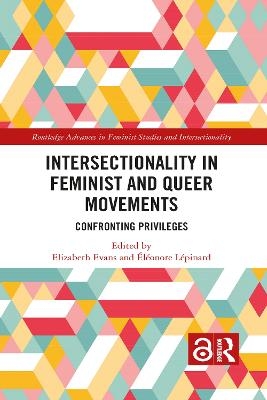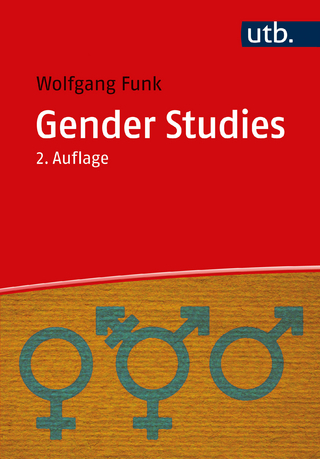
Intersectionality in Feminist and Queer Movements
Routledge (Verlag)
978-1-032-08440-4 (ISBN)
The volume sets out three key ways in which intersectionality operates within feminist and queer movements: it is used as a collective identity, as a strategy for forming coalitions, and as a repertoire for inclusivity. The case studies presented in this book then evaluate the extent to which some, or all, of these types of intersectional activism are used to confront manifestations of privilege. Drawing upon a wide range of cases from across time and space, this volume explores the difficulties with which activists often grapple when it comes to translating the desire for intersectionality into a praxis which confronts privilege.
Addressing inter-related and politically relevant questions concerning how we apply and theorise intersectionality in our studies of feminist and queer movements, this timely edited collection will be of interest to students and scholars from across the social sciences and humanities with an interest in gender and feminism, LGBT+ and queer studies, and social movement studies.
Elizabeth Evans is Reader in Politics at Goldsmiths, University of London. She researches feminist activism, intersectionality and political representation and is the author of two books, the most recent compares third-wave feminisms in Britain and the US. Éléonore Lépinard is Associate Professor in Gender Studies at the University of Lausanne. Her research focuses on feminist movements and theory, gender and law, intersectionality and gender and political representation.
Confronting Privileges in Feminist and Queer Movements; Section One: Thinking through Differences in Feminist and Queer Movements; 1. Borders, Boundaries and Brokers: The unintended consequences of strategic essentialism in transnational feminist networks; 2. Location Matters: The 2017 Women’s Marches as Intersectional Imaginary; 3. Changing Core Business? Institutionalised Feminisms and Intersectionality in Belgium and Germany; 4. Intersectional Complexities in Gender-Based Violence Politics; 5. Organising as Intersectional Feminists in the Global South: Birth and Mode of Action of a Post-2011 Feminist Groups in Morocco; 6. Intersectionality or Unity? Attempts to Address Privilege in the Contemporary Self-Help Movement; Section Two: Intersectionality and Social Movement Organising; 7. Disability and Intersectionality: Patterns of Ableism in the Women’s Movement; 8. Difficult Intersections: Nation(alism) and the LGBTIQ Movement in Cyprus; 9. Feminist Whiteness: Resisting Intersectionality in France; 10. Intersectional Praxis from Within and Without: Challenging Whiteness in Quebec’s LGBTQ Movement; 11. Paradoxes of Intersectional Practice: Race and Class in the Chicago Anti-Violence Movement; 12. Intersectional Politics on Domestic Workers’ Rights: The Cases of Ecuador and Colombia; 13. Queer Muslims, Autonomous Organising and the UK LGBT+ Movement; 14. Generational Conflict and the Politics of Inclusion in Two Feminist Events; Privileges Confronted?.
| Erscheinungsdatum | 01.07.2021 |
|---|---|
| Reihe/Serie | Routledge Advances in Feminist Studies and Intersectionality |
| Verlagsort | London |
| Sprache | englisch |
| Maße | 156 x 234 mm |
| Gewicht | 444 g |
| Themenwelt | Geisteswissenschaften ► Geschichte |
| Sozialwissenschaften ► Politik / Verwaltung | |
| Sozialwissenschaften ► Soziologie ► Gender Studies | |
| ISBN-10 | 1-032-08440-5 / 1032084405 |
| ISBN-13 | 978-1-032-08440-4 / 9781032084404 |
| Zustand | Neuware |
| Informationen gemäß Produktsicherheitsverordnung (GPSR) | |
| Haben Sie eine Frage zum Produkt? |
aus dem Bereich


